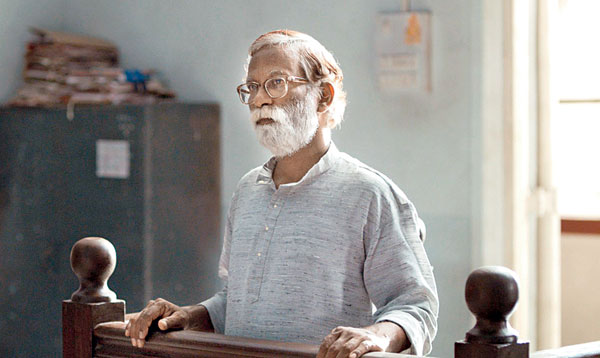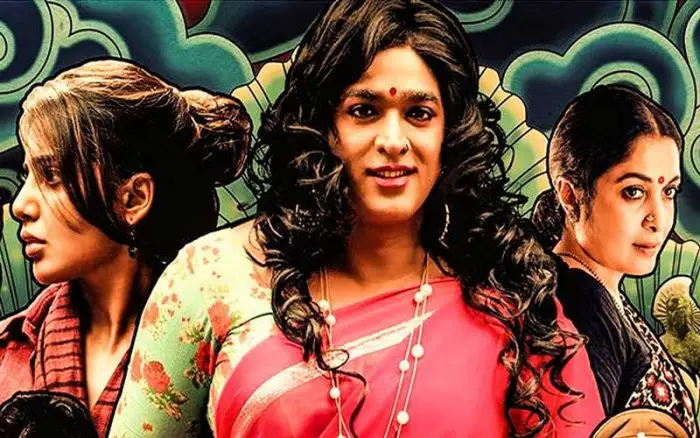Why is it that the stately golden knight with the crusader’s sword in its hands poised on a film reel a.k.a ‘Uncle Oscar’ continues to be off-limits early every year for the films from hungry, globalised, expansionist 21st century India? The country with the largest film industry in the world in terms of releases, an industry longer in existence than the country’s own 70 odd years of political sovereignty, should have been flaunting those statuettes in its tally for years already.
The question whether or not its films need the validation from the coveted prize, given its vast, self-sufficient domestic market is irrelevant now. The country has been trying to exert its ‘soft power’ as per Dr. Tharoor’s famous exhortation since the late 90s when its software technology prowess propelled it to the world stage.
It won its first individual Olympic gold medal more than a decade back and hasn’t been returning with an empty medals tally from all the editions of the games since. Its intellectuals and social activists have scooped up more of the elusive Nobel Prize since the country’s independence than its films folks have managed to bag the Oscars.
Hell, it is lustily stretching itself for a permanent seat at the UN Security Council each passing day with no signs of relenting. The celebrations back at Chennai after the individual Oscar Wins for Rahman and Resul Pookutty for their work in Slumdog Millionaire or even the hysteria generated around Lagaan’s nomination in the Foreign Film category 18 years back is testament to the fact that we have always longed for the ‘golden knight’ despite all the self-denial.
Truth be told, the film industry can longer afford to claim that its captive market is impervious to global influences. The very domestic market it had always smugly prided upon has turned against itself in the year just gone by.
The alarm bells could not have been louder when for the first time in the industry’s history the highest grossing film of the year was not a desi one but of Hollywood (Avengers Endgame was the top grosser of 2019 with over 430 crores of box-office collections).
The ripples are strong, so much so that an imminent Rohit Shetty release is being projected as another one from his hit ‘cop universe’ franchise; a sort of back-handed nod to the Marvel cinematic universe, the mastodonic Hollywood franchise.

The urgent need therefore, now than ever before, is to strive for wider reception of our homegrown films. Such reception will not come from just reaching out to the Indian diaspora. It was argued that the industry never had effective distribution channels to reach out to the diaspora which has been visible for more than half a century (Awara, the 1951 Raj Kapoor film, was so popular in Turkey that its songs have been translated to the local language and is often played at weddings and other functions). Organised access to that market, though, has been in place for some time now with the corporatized control on distribution and exhibition; substantial returns of the Aamir Khan starters Dhoom 3 and Dangal from China were ample proof of that. The door to new frontiers, thus, is going to break open only with international recognition and awards.
So why is it that Indian films are still failing to make a buzz internationally, a buzz strong enough for the world to sit up and take notice? This discussion has gathered steam again with the first Non-English film winning the Best Picture Oscar for the first time in the award’s history. Bong Joon Ho‘s Parasite has opened up the stage for global acclaim for Non-English language films like never before.

It is understandable then why questions are being asked from the world’s largest film industry. A meagre 3 nominations for its films (Mother India, Salaam Bombay and Lagaan) since the inception of the awards is, to put it mildly, abysmal.
The answer, perhaps lies in the films being made and the films being championed. It has been a known fact, at least over the past decade, that the Academy’s recognition in specific, and international recognition in general, has meant films being well-received in the international film festival circuit — with acclaim from the prestigious ones, Cannes, Venice and Toronto being primary. A cursory glance over the performance of Indian films in these festivals over the past 10 years is not laudatory to be precise. We’ll agree that Indian films are increasingly being accepted and premiered at these festivals. But the fact remains that only few are being held out as stand-out pieces of filmmaking and have actually ended up winning prizes there.
Not to mention there have been significant and worthy exceptions to that trend though. Lunchbox won the Critics Week Viewers’ Choice Award at Cannes in 2013, which many critics and connoisseurs think to this day was perhaps India’s best shot at the Oscars which went amiss. The next year again the Hindi film Masaan and the Punjabi film Chauthi Koot were awarded at the Un Certain regard section of the festival. Ship of Theseus (2013), considered a ‘tour de force’ in Indian filmmaking received wide critical film and won a handful of awards including at the BFI London film festival and the Tokyo film festival. And the most notable of them all has to be Marathi film Court (2014). It had a haul of 28 awards after globetrotting 60 film festivals, big and small, including the noteworthy ‘Lion of the Future’ prize at the Venice Film Festival.

But the fact remains that no Indian film has won any of the major competitive prizes at the top-rung festivals for close to two decades now (Monsoon Wedding won the Golden Lion at Venice in 2001) and by extension has not been a serious contender at the Oscars as well.
Cineastes say that is primarily due to the shrinking and neglected independent filmmaking space in the country. No matter how much we crib over the lack of quality after every awards season, the truth is nobody’s putting their money where their mouth is. And the indie filmmaking space continues to survive on the fringes with very little support in terms of institutional finance and infrastructure forthcoming.
The mainstream industry, with all its newfound penchant for ‘hinterland films’ over the past decade, has never really been expected to produce breathtaking and truly inventive pieces of work due to its constant obsession with return on investment. Dibakar Banerjee, one of the more original voices in the industry, said in a recent interview to Film Companion that he has had to always hustle and slip through the radar in order to make films the way he wanted them to. Nandita Das goes on to say in the same interview that how she, unaware of the modern machinations of the mainstream industry, accepted the proposition from the marketing team of a corporate production house that a rap song would be good for the promotions of her latest feature on the Urdu writer ‘Manto’.
As much as cinema is a collaborative art, it primarily and most importantly is, the result of the director’s singular vision. Ever since the gradual retreat of the doyens of independent filmmaking around the turn of the century (Benegal, Nihalani, Adoor, Aravindan, Shaji Karun), there has been a continuing denial, almost a disregard, of this fact.
Further, the sustained presence of the ‘Hindi Cinema’ bias amidst the decision makers has further hurt our chances internationally. The best and the bravest films in the country are being made in other languages. The Malayalam industry with its perennial state backing continues to be the front runner in breakthrough filmmaking.
Jose Pellisery, in focus ever since bagging the Best Director award at the International Film Festival in Goa for Ee.Ma.Yau., has further made heads turn with his wildly imaginative Jallikattu last year.
Assam has lately emerged as a center for fresh and exciting work (the lyrical Village Rockstars in 2017 and the bold, bizarre Aamis last year which was considered by many as a better contender than Gully Boy at the Oscars). Gurvinder Singh’s work in Punjabi cinema (Anhey Ghorey De Daan, and as mentioned earlier, Chauthi Koot) has commanded serious attention. Even the comparatively more mainstream 2019 Tamil thriller Super Deluxe was acclaimed across the board as a fabulously original piece of work.

These are the nooks and crevices where the voices and visions can be found which will help our cinema take quantum leaps in narrative structures, visual aesthetics and techniques and push the envelope of the art and language of film in this country.
As Faizal Khan put it in his Economic Times article in May last year that Cannes’ General Delegate Thierry Fremaux opined a few years back, ‘India has to create its own masters’.
And once it has done that, the prizes will eventually follow.

